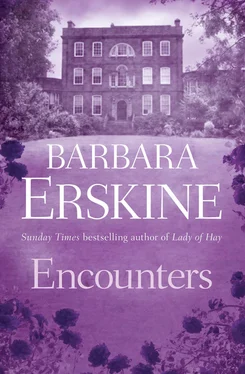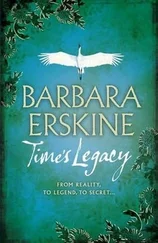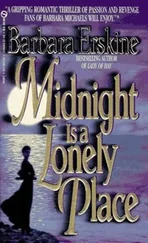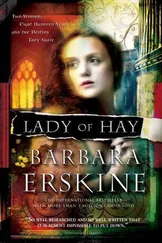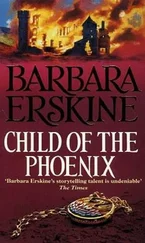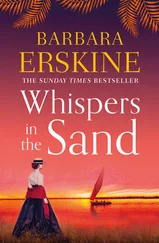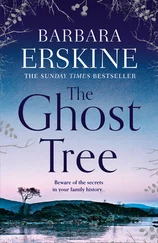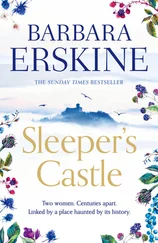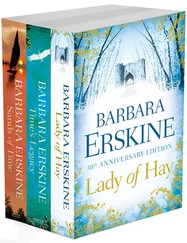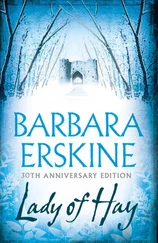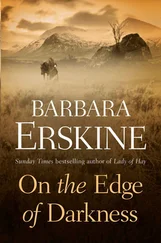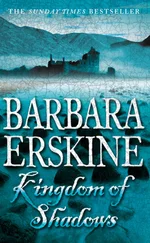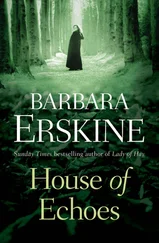


Published by HarperCollins Publishers Ltd
1 London Bridge Street
London SE1 9GF
www.harpercollins.co.uk
First published in Great Britain by Michael Joseph Ltd 1990
This edition published by Harper 2017
This collection © Barbara Erskine 1990 and as follows:
‘Cabbage a la Carte’ ( Woman’s Weekly ) 1976; ‘Feline Express’ ( New Love as ‘Cupid Was A Kitten’) 1978; The Consolation Prize’ ( Women’s World as ‘A Loving Invitation’) 1984; ‘There was a time when I was almost happy …” ( Woman’s World ) 1979; ‘Summer Treachery’ ( Rio ) 1981; Trade Reunions’ ( Best ) 1988; ‘The Bath: A Summer Ghost Story’ ( Living ) 1987; ‘The Green Leaves of Summer’ ( Woman’s Own Summer Stories) 1979; ‘Encounters’ ( Woman’s World ) 1977; The Touch of Gold’ ( The Writer ) 1976; The Helpless Heart’ ( Woman’s World as ‘Give Me Back My Dreams’) 1978; The Indian Summer of Mary McQueen’ ( Secrets ) 1980; ‘The Magic of Make Believe’ ( Woman’s World ) 1984; ‘A Summer Full of Poppies’ ( Secret Story , Robinson ) 1989; ‘A Face in the Crowd’ ( Woman’s World as ‘Forsaking All Others’) 1983; ‘Flowers Shouldn’t Make You Cry’ ( Woman’s World ) 1979; ‘Someone to Dream About’ ( Woman’s World ) 1986; ‘Milestones’ ( New Idea ) 1980; ‘Marcus Nicholls’ ( Red Star Weekly as ‘Windows on the Past’) 1980; ‘A Quest For Identity’ ( Woman’s World ) 1977; The Heart Will Understand’ ( Woman’s World ) 1980; ‘A Stranger With No Name’ ( Woman’s World ) 1980; ‘Just An Old-Fashioned Girl’ ( Woman’s World as ‘Love Never Changes’) 1981; ‘All This Childish Nonsense’ ( Woman’s World as ‘A Promise is Forever’) 1977; ‘A Love Story’ ( My Story ) 1976; ‘A Promise of Love’ ( Woman’s World as ‘Don’t Tread On My Dreams’) 1978.
Cover layout design © HarperCollins Publishers Ltd 2017
Cover images © Shutterstock.com
Barbara Erskine asserts the moral right to be identified as the author of this work.
A catalogue copy of this book is available from the British Library.
This novel is entirely a work of fiction. The names, characters and incidents portrayed in it are the work of the author’s imagination. Any resemblance to actual persons, living or dead, events or localities is entirely coincidental.
All rights reserved under International and Pan-American Copyright Conventions. By payment of the required fees, you have been granted the non-exclusive, non-transferable right to access and read the text of this e-book on screen. No part of this text may be reproduced, transmitted, down-loaded, decompiled, reverse engineered, or stored in or introduced into any information storage and retrieval system, in any form or by any means, whether electronic or mechanical, now known or hereinafter invented, without the express written permission of HarperCollins.
Source ISBN: 9780008180904
Ebook Edition © January 2017 ISBN: 9780007466351
Version: 2017-09-07
Table of Contents
Cover
Title Page
Copyright
Preface
A Step Out of Time
Visitors
Cabbage à la Carte
Metamorphosis
Feline Express
The Consolation Prize
The Valentine’s Day Plot
‘There Was a Time When I Was Almost Happy …’
Summer Treachery
Trade Reunions
All You Need to Do Is Smile
The Bath – a Summer Ghost Story
A Private Ceremony
The Green Leaves of Summer
Encounters
The Touch of Gold
The Helpless Heart
The Indian Summer of Mary McQueen
The Magic of Make Believe
Destiny
A Summer Full of Poppies
A Face in the Crowd
A Woman’s Choice
Flowers Shouldn’t Make You Cry
Footsteps in the Attic
Someone to Dream About
A Fair Revenge
Milestones
The Magic Carpet
The Proposal
Spaces
Marcus Nicholls
Salesmanship!
A Quest For Identity
Such a Silly Thing
The Heart Will Understand
Party Games
A Stranger With no Name
Just an Old-Fashioned Girl
All This Childish Nonsense
A Love Story
A Window on the World
A Promise of Love
Excavations
Keep Reading Barbara Erskine’s Novels
Keep Reading Sleeper's Castle
About the Author
Also by Barbara Erskine
About the Publisher
I have always loved reading short stories and, like many authors, tested my literary wings experimenting with them. At first glance anyway, the short story seems an easy route for the beginner, largely because it is, axiomatically, short; one is not aiming for some distant horizon two or three hundred thousand words away. Short stories are self contained, feisty, fun; they are tricky, challenging – compact crystallizations, each of which must have as much substance in its own way as its big brother, the novel.
Having started to write them, hooked by the lure of so many plots, so many characters, so many scenes and the technical challenge of construction, I have found that I cannot resist the form, and this selection is taken from the hundreds I have written over the past fifteen years.
I did not plan to be a short story writer. I wanted to be a novelist – specifically a historical novelist – and it was years ago while a student at university in Scotland that I decided to write my first novel, the story of Robert the Bruce and the woman who set the crown of Scotland on his head. Consumed with excitement as I worked on the outline, spending much more time on it than I did on my studies, I visited the sites of the story and, absorbing the atmosphere, walked alone along mist-shrouded rivers and around the remains of countless castles. I wrote several thousand words, then I stopped. I realized I couldn’t go, on. I hadn’t the experience of writing or of life to cope with the huge task I had set myself. Quietly and sadly I put my manuscript away. I knew I would write it one day – but not yet. (That book eventually became Kingdom of Shadows and, secretly, I incorporated those few thousand words unchanged into it – a debt to that student writer who had felt Robert and Isobel’s suffering but had not then been able to put it down on paper.)
My confidence was shaken. I had wanted to be a writer since I was three years old and yet I had fallen at the first major fence. It was a case of wanting to run before I could walk. Obviously I had an apprenticeship to serve and so came the idea of trying to write short stories. I studied the markets and began to write articles and stories to fit those markets. Miraculously the first story I wrote was accepted and published by the London Evening News. I was much encouraged!
It was when we went to live in the Welsh Borders that again the longing to write historical fiction grew too strong to resist and I recognized consciously for the first time that I was one of those writers for whom the spirit of place is all important. The land around me, the hills, the forests, the seas, evoke echoes I cannot ignore. I have to write about them. I have to try and make my readers see and hear and even smell the landscape and its history as I see and hear and feel it.
Читать дальше
